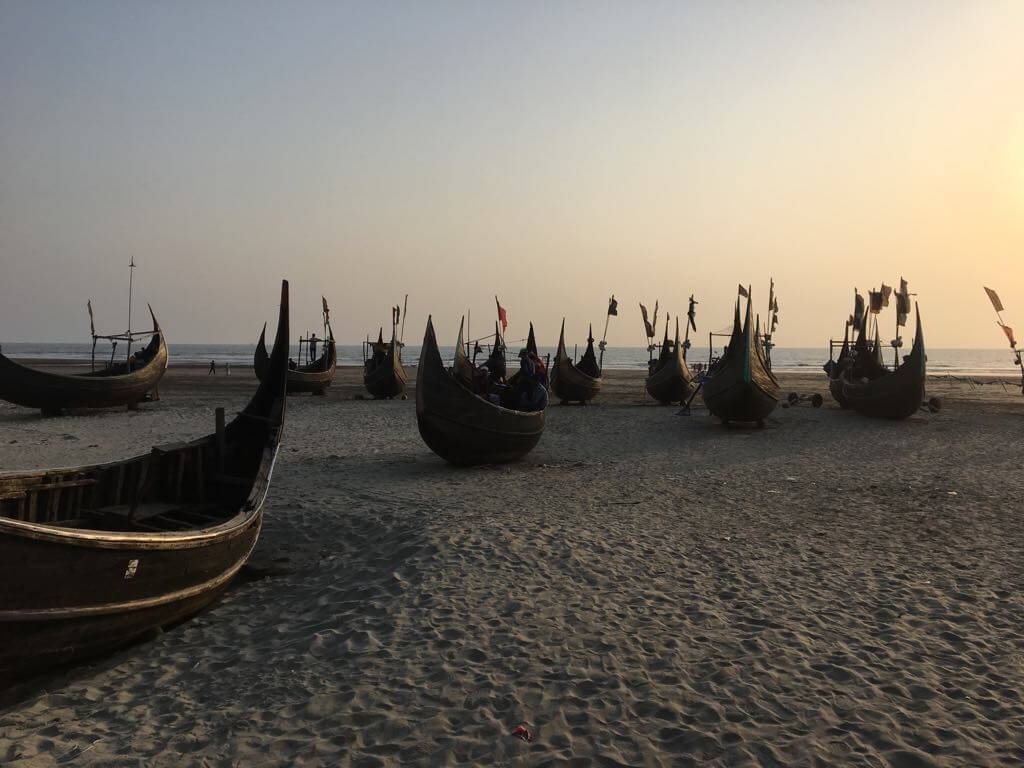AUTHORED BY COLE STERR
Asset Management and Analyst Intern Nusrat Chowdhury came to Minnesota in the fall of 2016. Her mother, who disapproved of her moving across the world from Bangladesh, told her not to tell anyone that she was a practicing Muslim. Never feeling uncomfortable to disclose her religion, Chowdhury embraced her new life in Minnesota and put down new roots in a place she’d call home for the rest of her academic career.
Chowdhury’s Deep Roots
Chowdhury’s roots were established in Chittagong, Bangladesh, a city that maintains traditional beliefs. For example, women are not encouraged to pursue any higher education before marriage, study abroad, or have a career. Chowdhury decided to imagine the possibilities of rejecting societal norms and took a chance to fulfill her dream of receiving a college education in the United States, despite her family’s apprehension.
As a young girl, Chowdhury received strong pressure not to earn a higher education and instead, get married and stay in the home. “The society thinks that having a career is not a vital part for a woman,” she explains.
That said, Chowdhury’s grandfather, a big influence in her life, had always encouraged her to pursue a post-graduate collegiate route. Eventually, Chowdhury was accepted into the Asian University for Women in Chittagong, an independent, international institution that accepts 100-200 young women from 14 different Asian countries each year. At the university, Chowdhury developed a passion for economics. She also connected with young women from all over Asia, learning how diverse each Asian country represented was. Chowdhury describes her time at the university as “one of the most crucial” parts of her life because it supplied her with the ambition and empowerment to follow her passion of receiving a post-graduate education.
Chowdhury feels most happy when her work is contributing to some sort of societal change; remapping opportunities for marginalized communities and identities is where her passion lies. During her time with the Asian University for Women, she spent time working on advocacy campaigns to make feminine hygiene products more accessible to low income individuals. She also became very interested in working with transgenders, saying that they are an “untapped social circle that nobody likes to work with [in Bangladesh].”
From Chittagong to Minneapolis
Coming to the U.S. was by no means an easy transition for Chowdhury. According to her, the biggest culture shock that she experienced was how hard it was to make friends here; the individualist culture was quite the juxtaposition to Bangladesh’s collectivist culture. Upon meeting someone for the first time in Bangladesh, you’d most likely be invited into their home for a cup of tea. That’s simply not the case here in the U.S., a difficult societal norm for Chowdhury to adopt.
Adapting to the individualist culture was not the only challenge for Chowdhury; her identity as an international student in Minnesota engendered some more unexpected obstacles. As Chowdhury was looking for internships in the U.S., she found that many businesses were (and still are) unable to hire international students, which forced her to focus solely on her studies. It wasn’t until she applied for a position as an Asset Management and Analyst Intern here at United Properties that she was able to enter the American work force.
Early on, Chowdhury also discovered a disconnect between domestic and international students. Most of Chowdhury’s friends are international students given that they share a common bond of ubiquitously not feeling at home. To help improve support and resources for the international student community, Chowdhury has been a member of the U of M’s International Student Advisory Board. She and nine other student members offer feedback and suggestions aimed to improve the college experience of international students. Since coming to the U.S., Chowdhury has learned that building relationships is important when making a foreign place feel like home.
Imagining the Possibilities
Nearly two years later, Chowdhury will begin her last semester at the University of Minnesota this fall. She will work as one of four research assistants at the Heller Hewitt Economics Institute at the university.
For the future, Chowdhury plans to pursue a master’s degree in Economics. She also plans to continue engaging in work that will positively change society and supply opportunities to those who are less fortunate.
About United Properties
United Properties has been creating deep roots in the commercial real estate industry for more than 100 years. The company imagines new possibilities in real estate to help enrich communities and create lasting legacies. United Properties provides market expertise for ground-up development, redevelopment and acquisitions of value-add and stable investments. The company invests in and develops office, industrial, retail, mixed-use and senior housing properties. United Properties is owned by the Pohlad Companies and is headquartered in Minneapolis, with offices in Denver and Austin, Texas.




